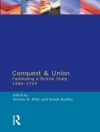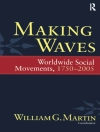Seers featured prominently in ancient Greek culture, but they rarely appear in archaic and classical colonial discourse. Margaret Foster exposes the ideological motivations behind this discrepancy and reveals how colonial discourse privileged the city’s founder and his dependence on Delphi, the colonial oracle par excellence, at the expense of the independent seer. Investigating a sequence of literary texts, Foster explores the tactics the Greeks devised both to leverage and suppress the extraordinary cultural capital of seers. The first cultural history of the seer,
The Seer and the City illuminates the contests between religious and political powers in archaic and classical Greece.
Зміст
Acknowledgments
Conventions and Abbreviations
Introduction
1. Beyond Entrails and Omens: Herodotus’s Teisamenos and the Talismanic Seer at War
2. Sailing to Sicily: Theoklymenos and Odysseus in the Odyssey
3. Suppressing the Seer in Colonial Discourse: Delphic Consultations and the Seer in the City
4. Th e Disappearance of Melampous in Bacchylides’ Ode 11
5. Hagesias as Sunoikister: Mantic Authority and Colonial Ideology in Pindar’s Olympian 6
6. Amphiaraos, Alkmaion, and Delphi’s Oracular Monopoly
Conclusion
Bibliography
Index
Index Locorum
Про автора
Margaret Foster is Assistant Professor of Classical Studies at Indiana University.












